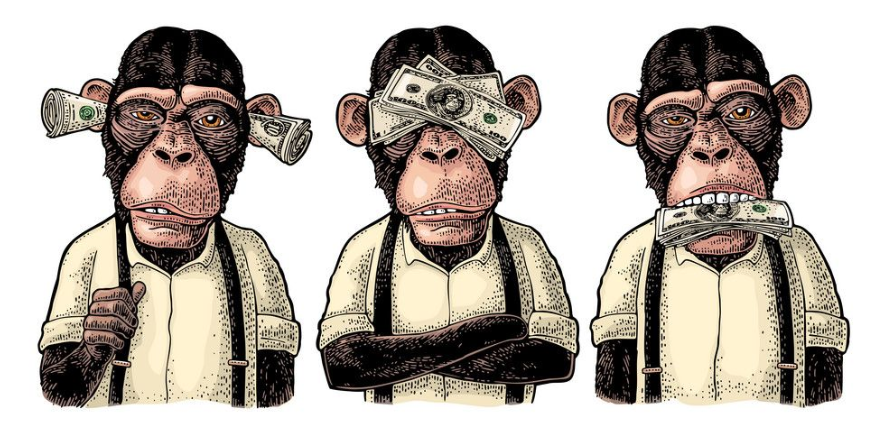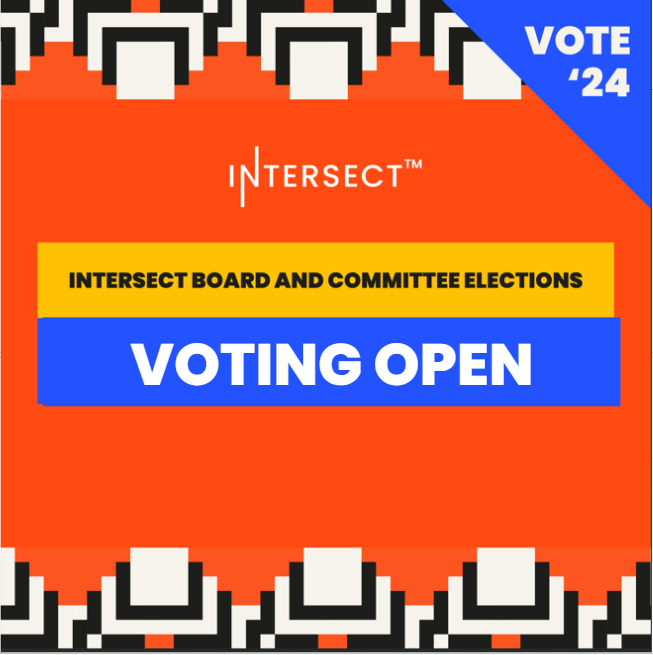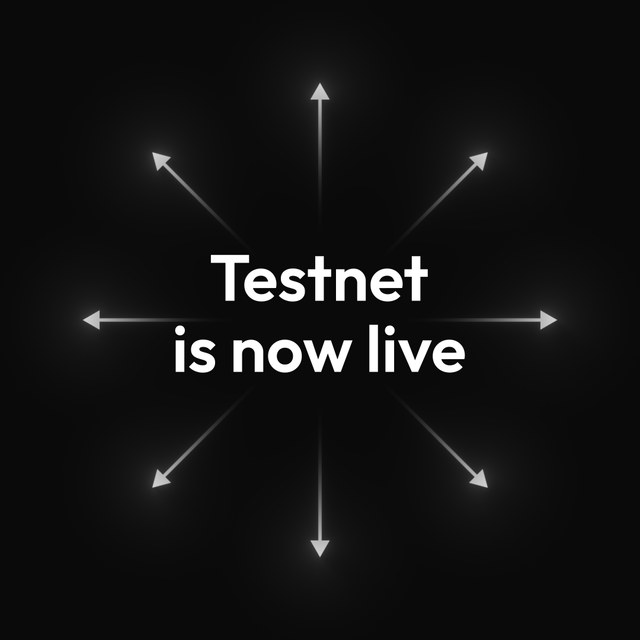Is Cardano for IT gurus and Bitcoin for economists?
A public blockchain is primarily a network protocol that needs an economic model to function. In order for the network as a whole to be well-tuned, information technology experts and economists must be involved in the process. In the...

A public blockchain is primarily a network protocol that needs an economic model to function. In order for the network as a whole to be well-tuned, information technology experts and economists must be involved in the process. In the adoption process, it is people from these two disciplines that inform the most about cryptocurrencies. Few people are both excellent economists and proficient programmers. To make matters worse, cryptocurrencies are also interesting from the perspective of law, sociology, political science, and for other disciplines. Blockchain is a relatively complex and difficult-to-grasp phenomenon. An understanding of facts from many disciplines is required to form a comprehensive picture. In this article, we will discuss how the perspectives of IT experts and economists differ.
TLDR:
- Economists can be wrong when they talk about PoS. IT experts can be wrong when they talk about the store of value.
- Many statements are opinions, wishful thinking, or prophecy rather than a guarantee.
- Never trust arguments from the past that confirm someone's bias.
- The reality is that many questions cannot be answered even by experts in their fields. Time is the best arbiter.
- Blockchain technology is failing economically because of the drop in value during the financial crisis, but that does not necessarily mean it is failing technologically.
- Economists may argue that smart contract platforms are not generally useful. IT experts and other economists will argue that Defi is very useful and is our future. Time will best answer this battle of opinions.
- People tend to listen to economists more than IT experts.
- Blockchain technology was not created so that one side wins and the other loses.
Common sense must win
Bitcoin is a favorite of economists who often refer to it as a store of value or new money. Economists often tend to overlook the opinions and arguments of IT experts regarding Bitcoin's ability to function well as a network. Economists tend to promote Bitcoin at all costs. They have taken a liking to PoW basically just because Bitcoin uses it. They are not interested in arguments about PoS and do not have the technical background to understand all the details. Because economists want to push Bitcoin at any cost, they started talking about the technological detail. Unfortunately, often very superficially and inaccurately. People tend to believe economists because if they believe what they say in terms of economics, they believe they are right about technology. This may or may not be true.
It also works the other way around. Cardano attracts many IT experts. They focus mainly on technology. Specifically, PoS. They like to talk about the differences between PoS and PoW, dealing with scalability, smart contracts, tokenization options, etc. IT experts tend to ignore the views of economists. Economists often say that if we have Bitcoin, nothing else can be a store of value or money. Supposedly we only need one cryptocurrency and if we already have one we don't need another. The technological details are not important. Even in the case of IT experts, we can observe that they have started talking about the economic aspects of cryptocurrencies. They may or may not be right.
In every group of fans, there are people who understand their fields very well. There are good IT experts in the Bitcoin community and good economists in the Cardano community. Rivalry and tribalism between projects can distort opinions a lot. For people who are not experts in either field, it can be very difficult to navigate the tangle of different opinions and arguments. Personal sympathies or the size of the group can play a big role. It is very difficult to find objective arguments.
Unfortunately, even objective arguments may not help us to make good guesses about future developments. Often we have to work with opinions and predictions rather than with certainty. Many statements are opinions, wishful thinking, or prophecy rather than a guarantee.
If someone really wants to understand cryptocurrencies and be able to predict future developments, they have no choice but to keep an open mind and be critical of every opinion. To be locked in an opinion bubble and to fight stubbornly for one group's truth is certainly not conducive to knowledge.
We are living in a very dynamic time when our economy is falling apart and the CBDC is coming. We are making technological advances literally every day. It's important not to be stuck in one opinion and to be able to adapt to change. What is true today may not be true tomorrow. If we have a technological problem today, it can be solved tomorrow. Technological progress means a shift and change in reality.
Examples of misunderstandings and argumentative fallacies
I remember a famous economist trying to convince me that Bitcoin is money, therefore it cannot be technology. Bitcoin supposedly isn't even or doesn't use a blockchain. It made no sense at all to argue that Bitcoin is software, a network protocol and that some database is important. This economist clearly had no technical background and was unable to understand what I was saying. Perhaps he was so preoccupied with the economics of Bitcoin that he simply ignored the technology and didn't find it important.
Most important to the economist was the concept of a digital store of value and hard non-state money. I asked him why he believed this when most economists disagree that Bitcoin's deflationary model could work as a medium of exchange. People are not willing to use bitcoins for payment and I don't think that will change anytime soon. The economist had no specific answers. He rather had some views on possible developments, but nothing concrete.
Another famous economist had tried to convince me that PoS could never work. His strongest argument was that Andrew Poelstra wrote a five-page paper in 2014 called "Distributed Consensus from Proof of Stake is Impossible". I argued that many years had passed since that paper was written and that scientific research works by trying to solve technological challenges. The economist referred me to another more recent paper that also dealt with PoS. I told him that the paper was from the IOG team and that it referenced the work of Andrew Poelstra and explained how to address the problems Andrew described. The IOG work was even so good that it found additional attack vectors on PoS that needed to be addressed before running this consensus.
The economist probably still believes that PoS will never work. He believes the arguments from the past that he used to confirm his bias. That's all he needs. He doesn't mind that Cardano has been using PoS for three years, or that Ethereum has recently switched to this consensus as well. His mind is closed. He will never admit that humanity has made technological advances. He only believes in Bitcoin and PoW, so he deliberately wants to turn a blind eye to any new technology.
It must be admitted that even the arguments of the Cardano community may not always be correct. Even though we may be convinced and believe them, we may be wrong.
PoW fans are convinced that only energy consumption can ensure the security of network consensus. PoS fans are convinced that coins have a market value just like electricity has a value and that the PoS network is protected by very similar principles to PoW networks. A resource that has market value is distributed among a group of people who participate in the grid consensus. There are of course major differences between PoS and PoW. Electricity is a renewable and infinite resource whereas ADA coins are a non-renewable and finite resource. Obviously, staking and mining are different, yet we believe the basic economic principles and incentives are analogous.
Maybe we are wrong and time will show us that the only way is PoW. On the other hand, the longer the PoS works, the more we can be convinced that our arguments are correct. Time is the best arbiter. The reality is that many questions cannot be answered even by experts in their fields. We cannot know the answers to many of our questions and must wait.
It is important to distinguish between facts that can be verified and opinions that only time can verify. Mathematics and science are powerful enablers, so the IOG team is very good at simulating and predicting the behavior of technology in practice. However, only time will provide bulletproof evidence.
From my perspective, the evolution of technology is easier to predict. With the economic aspects of cryptocurrencies, I perceive a much greater degree of uncertainty as there are more variables at play.
People's demand for new economic tools and decentralization in general, regulation, government reaction to cryptocurrencies, competition from CBDC and new currencies from IT giants, high volatility of cryptocurrencies, and a large amount of fraud. These are just some of the many variables that will affect the future development of cryptocurrencies.
When narratives fail and new ones are born
Bitcoin is the answer to the global financial crisis of 2008. We are now arguably at the beginning of another financial crisis. Many would agree it has been underway for some time. If Bitcoin is to be considered by people as a store of value, it has a chance to confirm that narrative right now. Unfortunately, the high loss of value of bitcoins during the ongoing crisis rather disproves this narrative. This is simply a reality that we have to accept. We'll see what happens next, but if the value of coins continues to fall along with the markets, people will be disappointed. On the other hand, if inflation continues to rise and Bitcoin, along with other cryptocurrencies, goes against the tide, it will be a very positive phenomenon.
It is important to look at decentralization from a broader perspective. Blockchain technology is failing economically because of the drop in value during the financial crisis, but that does not necessarily mean it is failing technologically.
From the perspective of newcomers and the general public, the narrative of Bitcoin as a store of value is collapsing. While falling markets are affecting the value of ADA coins, Cardano is primarily a decentralized network that is set to become a global financial and social operating system. Cardano is not presented as a store of value at this point, but as a potential global financial backbone. Cardano is still in development, so it cannot be faulted that ADA coins behave like the stocks of all other technology companies. The public may perceive Cardano as a young startup.
In order to validate the narratives around Cardano, it is necessary to have stablecoins in the ecosystem, the ability to create your own decentralized identity, and allow people to use secure and reliable Defi services. We're still waiting for that, so it's hard to jump to any conclusions at this point.
IT experts know what technologies still need to be delivered and have a relatively good estimate of how long it may take. They are able to see Cardano as a technology that is still in development. Unfortunately, economists don't have that perspective and if they look at Cardano through the lens of Bitcoin, they can't make a correct opinion.
Economists often regard Bitcoin as a finished technology and cannot accept that Cardano is still in development. If the value of ADA coins falls, they consider it a failure. It is easy for them to argue, for example, that Bitcoin has a broader user base that will never be caught up by anybody. But that's the wrong way to look at it. They just can't look at the current state and compare a 13-year-old project to a newcomer. The social network Myspace also had the widest user base and was surpassed by the younger Facebook. Myspace has lost its first-mover advantage.
The user base of the Cardano project is growing steadily and the biggest growth is yet to be expected. If economists want to take a proper view of Cardano, they must not see ADA coins as a store of value and competition for Bitcoin, but as what Cardano is trying to become. Cardano is not meant to be just a transactional network with PoW, but a decentralized smart contract platform with PoS.
Economists may argue that smart contract platforms are not generally useful. Other economists and IT experts will argue that Defi is very useful and is our future. Let's leave that question open. Time will best answer this battle of opinions. Some people are trying to make a point about something that doesn't exist yet or that people haven't sufficiently adopted. If we wanted to be critical, we could say that people haven't adopted Bitcoin yet either. We would not be far from the truth.
Some may consider the current adoption of Bitcoin a great success because it is the largest of all cryptocurrencies. Others, however, may argue that it is very low in the context of the project's longevity. It depends on which way you want to look at it.
You can also look at it as the IT experts (team) have handed over Bitcoin to the community and it's time for economists to comment. Cardano is still in development, so in the hands of IT experts. It is not yet time for economists to comment on it. This is of course very inaccurate and misleading. Bitcoin is still in development and will need major technological changes. It is already possible to make an opinion on Cardano from the perspective of economists. For example, staking is economically very interesting.
People tend to listen to economists more than IT experts because most people have some understanding of how money, investing, and markets work. It can be more difficult for most to understand the arguments of IT experts.
It is important to realize that while the Bitcoin narrative may be failing in the current economic crisis, the narrative around Cardano has yet to assert itself and, more importantly, be validated over time. Cardano has a slight advantage in this financial crisis in that no one expects ADA coins to go against the negative market trends and rise when everything else is falling. In the case of Bitcoin, people are still hoping that will happen. At least that's what economists have been saying for years.
The golden mean
Rule of thumb. If there are two opposing views and there is a piece of truth on both sides, the truth will probably be somewhere in the middle. Don't expect one economist or IT expert to tell you what the future of cryptocurrencies will be. It is important to listen to the opinions of all those who have relevant arguments and make up your own mind. If blockchain technology takes hold en masse, it will be a completely fundamental financial and social transformation of our society.
People tend to overestimate disruptive technologies in the short term and underestimate them in the long term. We're still in the beginning stages of adoption. We are at the stage where there is no going back and forth and laws and regulations are being drafted. The main wave of adoption is yet to come. Nothing is certain at this point. Don't just listen to economists and IT experts. It's a good idea to seek the opinions of politicians, sociologists, historians, and other experts.
Definitely don't underestimate the technological aspect of cryptocurrencies. Blockchain is first and foremost technology, and a quality team is a vital part of any project. PoS was not created to overcome PoW, but to make decentralization economically accessible to more people on the planet and to do without excessive electricity consumption. It's a technological advance.
Opinions on PoS will vary depending on who you ask. Don't expect a relevant opinion from an economist in the Bitcoin camp. For him to accept that PoS can work is a betrayal of Bitcoin. Ask IT experts about technology and economists about economic issues. Count on the fact that the answers may always be biased depending on which project the interviewee is rooting for. People usually have trouble admitting they were wrong, so it can take a very long time for them to change their minds. They usually do it quietly and carefully. If you use the rule of thumb, consider PoS to be a working consensus and have several years of operation behind it. Accepting a proven fact and predicting what will happen next is often the best strategy.
Conclusion
The purpose of the exchange of views should not be the victory of one side, but progress. The selfish economic interests of those who report on cryptocurrencies greatly distort reality. Many people act like parrots and repeat the opinions of others without understanding the topic. Where your money is, your mouth will be. It is very rare to find a rational and balanced debate on any topic in the cryptocurrency space. Each side is eager to win the debate and defeat the other side. Few people want to shift opinions and educate themselves, most people want to be the winner.
I don't envy the newcomers' situation at all, as they are in a whirlwind of opinions and often have to wait like everyone else for some arguments to be confirmed or refuted. Blockchain technology was not created so that one side wins and the other loses. Bitcoin is a response to the financial crisis, and Cardano is the next project in line to address the current financial and social problems. Any technology that moves us forward will be important for society. If we want to build a free world, we must not become the biggest anti-freedom fighters just because of tribalism between projects.
Delegate Your Voting Power to FEED DRep in Cardano Governance.
DRep ID: drep12ukt4ctzmtf6l5rj76cddgf3dvuy0lfz7uky08jfvgr9ugaapz4 | We are driven to register as a DRep by our deep dedication to the Cardano ecosystem and our aspiration to take an active role in its development, ensuring that its progress stays true to the principles of decentralization, security, and community empowerment.DELEGATE VOTING POWER!







